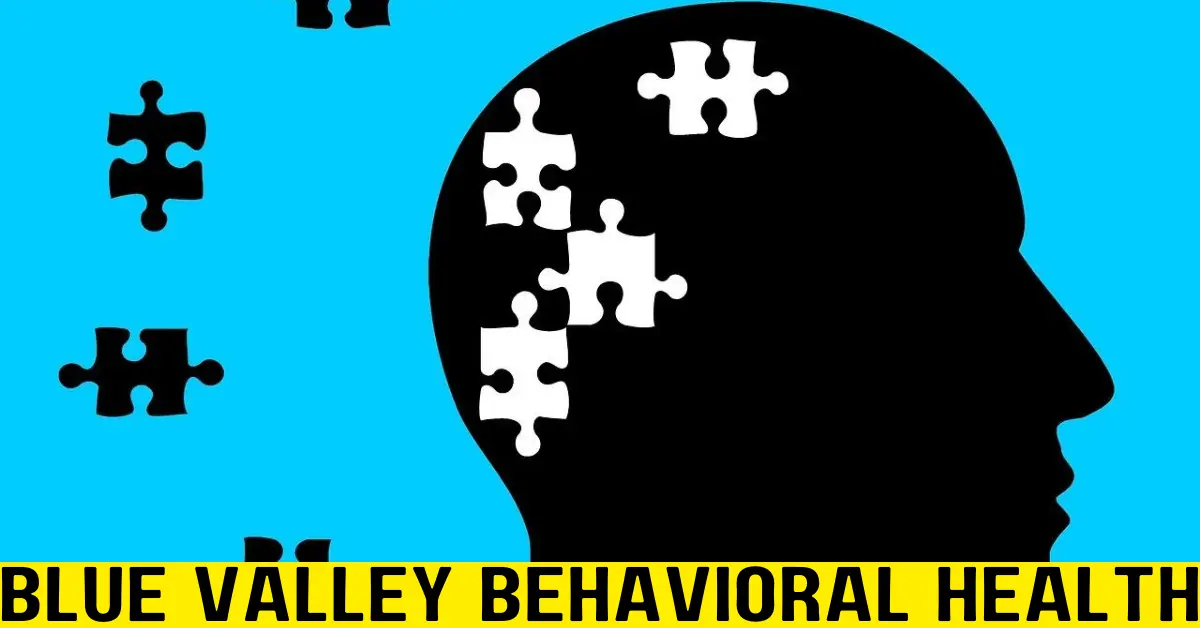“A functional medicine health coach” is a guide and a supporter who helps individuals achieve their optimal health coach through personalized lifestyle changes. They work collaboratively with clients to identify the root causes of health concerns and create an individualized plan to address them. This plan typically focuses on diet, exercise, sleep, stress management, and other lifestyle factors that can have a profound impact on overall well-being.
Here are some of the key things that functional medicine health coaches do:
- Gather information: They take a detailed health history, including your current symptoms, medical history, family history, lifestyle habits, and any relevant lab tests.
- Assess your needs: They use their knowledge of functional medicine principles to identify the underlying imbalances or dysfunctions that may be contributing to your health concerns.
- Develop a personalized plan: They work with you to create a plan that addresses your specific needs and goals. This plan may include changes to your diet, exercise routine, sleep habits, stress management techniques, and other lifestyle factors.
- Provide support and accountability: They act as your cheerleader and coach, helping you stay motivated and on track as you implement your plan.
- Educate and empower: They provide you with the knowledge and tools you need to make informed decisions about your health and take charge of your well-being.
Functional medicine health coaches are not doctors and cannot diagnose or treat medical conditions. However, they can play a valuable role in supporting your overall health coach and well-being by helping you make positive lifestyle changes.
If you are considering working with a functional medicine health coach, it is important to find a qualified practitioner who is certified by a reputable organization. You should also make sure that the coach is a good fit for you and your needs.
What is functional nutrition coaching?
Functional nutrition health coaching dives deeper into the specific dietary aspect of achieving optimal health, but holds similarities to functional medicine health coaching. Here’s a breakdown:
What it is:
- Holistic Approach: It goes beyond “good” and “bad” foods, considering your unique needs, preferences, and lifestyle to personalize a nutrition plan.
- Root Cause Focus: It aims to identify underlying imbalances (e.g., nutrient deficiencies, food sensitivities) contributing to health concerns, not just treat symptoms.
- Food as Medicine: It views food as a powerful tool for promoting health and addressing imbalances, similar to functional medicine.
- Personalized Plan: It creates a customized dietary plan considering your health goals, cultural preferences, and eating habits.
- Support and Coaching: It provides ongoing guidance, motivation, and accountability to help you implement and adapt your plan.
Key Similarities to Functional Medicine Health Coaching:
- Individualized approach: Both tailor their approach to your specific needs and goals.
- Focus on lifestyle factors: Both consider how sleep, stress, and exercise impact your health.
- Emphasis on prevention and well-being: Both aim to optimize your health, not just treat disease.
Differences from Functional Medicine Health Coaching:
- Scope: Functional nutrition coaches focus specifically on dietary factors, while functional medicine coaches have a broader scope encompassing other lifestyle areas.
- Training: Different certifications and training requirements exist for each field.
Who can benefit from Functional Nutrition Coaching:
- Individuals with specific health concerns like digestive issues, fatigue, skin problems, or weight management.
- People wanting to optimize their health and prevent future issues.
- Those seeking personalized guidance beyond generic dietary advice.
Finding a Qualified Coach:
- Look for certifications from reputable organizations like the American Nutrition Association (ANA) or the Institute for Functional Medicine (IFM).
- Read reviews and testimonials from previous clients.
- Schedule a consultation to discuss your needs and see if the coach is a good fit.
Remember, functional nutrition coaching is not a replacement for medical advice. Always consult with your doctor for diagnosis and treatment of any medical conditions.
What is the scope of practice for the FMCA?
The term “FMCA” can refer to a couple of different organizations in the health and wellness space, which can lead to some confusion regarding their scope of practice. Here’s what I found:
1. Functional Medicine Coaching Academy (FMCA):
This organization does not issue certifications or licenses, so it doesn’t directly define a specific scope of practice. However, their training programs focus on functional medicine health coach, which means their graduates are typically not considered healthcare providers. Their scope is generally limited to:
- Providing support and guidance for clients in adopting healthy lifestyle changes within the functional medicine framework.
- Empowering clients to set and achieve health goals related to diet, exercise, sleep, stress management, and relationships.
- Utilizing motivational interviewing and other coaching techniques to facilitate self-directed change.
2. Functional Medicine Certification Academy (FMCA):
This organization offers certifications for various healthcare professionals, including doctors, nurses, and registered dietitians. In this case, the scope of practice depends on the individual’s underlying licensure and training. For example, an MD certified in functional medicine can still diagnose and treat medical conditions, while a registered dietitian with the same certification can provide personalized dietary counseling within their licensure limitations.
Key points to remember:
- The FMCA (coaching academy) does not define a specific scope of practice.
- Functional medicine health coaches cannot diagnose or treat medical conditions.
- Healthcare professionals with an FMCA certification (medical academy) operate within their existing licensure limitations.
It’s crucial to understand the distinction between these organizations and the individuals associated with them before engaging with any services. Always ask about the provider’s credentials and scope of practice to ensure they are qualified to address your specific needs and concerns.
I hope this clarifies the situation!
What is a holistic health coach?
A holistic health coach is a guide and supporter who helps individuals achieve their optimal health through personalized lifestyle changes. They take a holistic approach, meaning they consider all aspects of your life that can impact your well-being, including:
- Physical health: Diet, exercise, sleep, posture, etc.
- Mental health: Stress, emotions, relationships, etc.
- Emotional health: Beliefs, values, purpose, etc.
- Social health: Connections with others, community, etc.
- Environmental health: Exposure to toxins, air quality, etc.
What they do:
- Gather information: They take a detailed health history, including your current symptoms, medical history, family history, lifestyle habits, and any relevant lab tests.
- Assess your needs: They use their knowledge of holistic health principles to identify the underlying imbalances or factors that may be contributing to your health concerns.
- Develop a personalized plan: They work with you to create a plan that addresses your specific needs and goals. This plan may include changes to your diet, exercise routine, sleep habits, stress management techniques, and other lifestyle factors.
- Provide support and accountability: They act as your cheerleader and coach, helping you stay motivated and on track as you implement your plan.
- Educate and empower: They provide you with the knowledge and tools you need to make informed decisions about your health and take charge of your well-being.
Important things to note:
- Not medical professionals: They cannot diagnose or treat medical conditions. If you have any concerns, consult a doctor first.
- Complementary, not alternative: They work alongside medical professionals to support your overall health journey.
- Focus on prevention and optimization: They aim to help you achieve your best health coach, not just treat specific diseases.
Who can benefit:
- Anyone looking to improve their overall health and well-being.
- Individuals with specific health coach concerns such as digestive issues, fatigue, stress, or weight management.
- People seeking a more proactive approach to managing their health.
Finding a qualified coach:
- Look for certifications from reputable organizations like the American Holistic Health Association (AHHA) or the National Board for Certified Coaches (NBCC).
- Read reviews and testimonials from previous clients.
- Schedule a consultation to discuss your needs and see if the coach is a good fit.
Remember: Holistic health coaching is a valuable tool for improving your health and well-being, but it’s important to choose a qualified coach and understand their limitations.
What is the difference between a coach and a nutritionist?
Both coaches and nutritionists work in the field of health and wellness, but their approaches and areas of expertise can differ significantly. Here’s a breakdown to help you understand their key differences:
Focus:
- Coach: Takes a broad, holistic approach to well-being, considering various aspects like mindset, behavior change, goal setting, and lifestyle modifications. Coaches support and empower individuals to achieve their desired health outcomes by providing guidance, motivation, and accountability.
- Nutritionist: Specializes in the science of food and its impact on health. They primarily focus on developing personalized dietary plans and providing education on nutritional principles. Their advice revolves around specific food choices and how they relate to your individual needs and goals.
Qualifications:
- Coach: Certification requirements vary depending on the specific coaching methodology. While formal education isn’t always mandated, many coaches hold certifications from reputable organizations like the National Board for Certified Coaches (NBCC).
- Nutritionist: Titles and qualifications can vary. Some may have a degree in nutrition science, while others have certifications from independent organizations. Registered Dietitians (RDs) and Licensed Dietitians (LDs) have the highest level of education and training, requiring a bachelor’s degree, supervised practice, and passing a licensing exam.
Scope of Practice:
- Health Coach: Cannot diagnose or treat medical conditions. They collaborate with other healthcare professionals when needed but mainly focus on non-medical interventions to improve clients’ health and well-being.
- Nutritionist: Their scope varies depending on their qualifications. RDs and LDs can assess nutritional needs, diagnose nutritional deficiencies, and provide medical nutrition therapy for certain conditions. Other nutritionists may offer general dietary advice and recommendations but cannot legally diagnose or treat medical conditions.
Examples:
- Coach: Life coach, wellness coach, health coach, fitness coach, career coach.
- Nutritionist: Sports nutritionist, clinical nutritionist, pediatric nutritionist, integrative nutritionist.
Choosing the right professional:
- Coach: If you need broader support with behavior change, goal setting, and overall well-being, a coach may be a good choice.
- Nutritionist: If you have specific dietary concerns, require personalized meal plans, or want expertise in managing a health condition through nutrition, a qualified nutritionist, especially an RD or LD, could be more suitable.
Remember: It’s important to ask about the professional’s qualifications and scope of practice to ensure they can address your specific needs and concerns. Consulting with a doctor is always recommended if you have any underlying medical conditions.
What is a wellness coach?
A wellness coach is a trained professional who supports individuals in achieving their health and well-being goals through personalized lifestyle changes. They take a holistic approach, focusing on various aspects of your life that can impact your overall well-being, including:
- Physical health: Diet, exercise, sleep, posture, etc.
- Mental health: Stress, emotions, relationships, etc.
- Emotional health: Beliefs, values, purpose, etc.
- Social health: Connections with others, community, etc.
- Environmental health: Exposure to toxins, air quality, etc.
What they do:
- Gather information: They’ll take a detailed history of your health, including your current symptoms, medical history, family history, lifestyle habits, and any relevant lab tests.
- Assess your needs: Based on your information, they’ll work to identify underlying imbalances or factors contributing to your concerns.
- Develop a personalized plan: They’ll collaborate with you to create a plan addressing your specific needs and goals. This plan may involve modifying your diet, exercise routine, sleep habits, stress management techniques, and other lifestyle factors.
- Provide support and accountability: They’ll act as your cheerleader and coach, motivating and encouraging you as you implement your plan.
- Educate and empower: They’ll provide knowledge and tools to make informed decisions about your health and take charge of your well-being.
Important things to remember:
- Not medical professionals: They cannot diagnose or treat medical conditions. Always consult a doctor first for any health concerns.
- Complementary, not alternative: They work alongside medical professionals to support your overall health journey.
- Focus on prevention and optimization: They aim to help you achieve your best health, not just treat specific diseases.
Who can benefit:
- Anyone looking to improve their overall health and well-being.
- Individuals with specific health concerns such as digestive issues, fatigue, stress, or weight management.
- People seeking a more proactive approach to managing their health.
Finding a qualified coach:
- Look for certifications from reputable organizations like the National Board for Certified Coaches (NBCC) or the International Coaching Federation (ICF).
- Read reviews and testimonials from previous clients.
- Schedule a consultation to discuss your needs and see if the coach is a good fit.
Remember: Wellness coaching is a valuable tool for improving your health and well-being, but it’s important to choose a qualified coach and understand their limitations.
What is an Ayurvedic health coach?
An Ayurvedic health coach is a guide who uses ancient Ayurvedic principles to help individuals achieve holistic health coach and well-being. Unlike general wellness coaches, they specifically draw their knowledge and practices from Ayurveda, a traditional Indian system of medicine dating back over 5,000 years.
What they do:
- Assess your Ayurvedic constitution: They identify your unique dosha, which represents your mind-body type according to Ayurvedic principles. The three main doshas are Vata (air and space), Pitta (fire and water), and Kapha (earth and water). Understanding your dosha helps tailor recommendations to your specific needs.
- Create personalized plans: Based on your dosha and health goals, the coach suggests lifestyle modifications across various aspects:
- Diet: They recommend foods balancing your dosha and promoting overall health.
- Yoga and exercise: They suggest practices suitable for your dosha and health concerns.
- Daily routines: They recommend establishing practices like sleep, meditation, and self-care rituals aligned with Ayurveda.
- Herbal remedies: Some coaches may suggest Ayurvedic herbs, but always consult a qualified practitioner for safe usage.
- Provide support and guidance: They assist you in implementing these changes, offering motivation and accountability.
- Educate about Ayurveda: They share knowledge about Ayurvedic principles and how they apply to your life, empowering you to make informed choices.
Important things to remember:
- Not medical professionals: They cannot diagnose or treat medical conditions. Always consult a doctor first for any health concerns.
- Complementary, not alternative: They work alongside medical professionals to support your overall well-being, not replace conventional care.
- Focus on prevention and balance: They aim to help you achieve an optimal state of health coach through lifestyle modifications, not solely treat specific diseases.
Who can benefit:
- Individuals seeking a holistic approach to health and well-being.
- People interested in exploring Ayurveda and its principles.
- Those looking for natural ways to manage stress, improve sleep, or address minor health concerns.
Finding a qualified coach:
- Look for certifications from reputable organizations like the National Ayurvedic Medical Association (NAMA) or the American Association of Ayurvedic Professionals (AAAP).
- Ensure their training covers both Ayurvedic principles and coaching skills.
- Read reviews and testimonials from previous clients.
- Schedule a consultation to discuss your needs and see if the HEALTH coach is a good fit.
Remember: While Ayurvedic health coach can be valuable, it’s crucial to choose a qualified practitioner and understand their limitations. Consult your doctor before implementing significant lifestyle changes related to Ayurveda.








